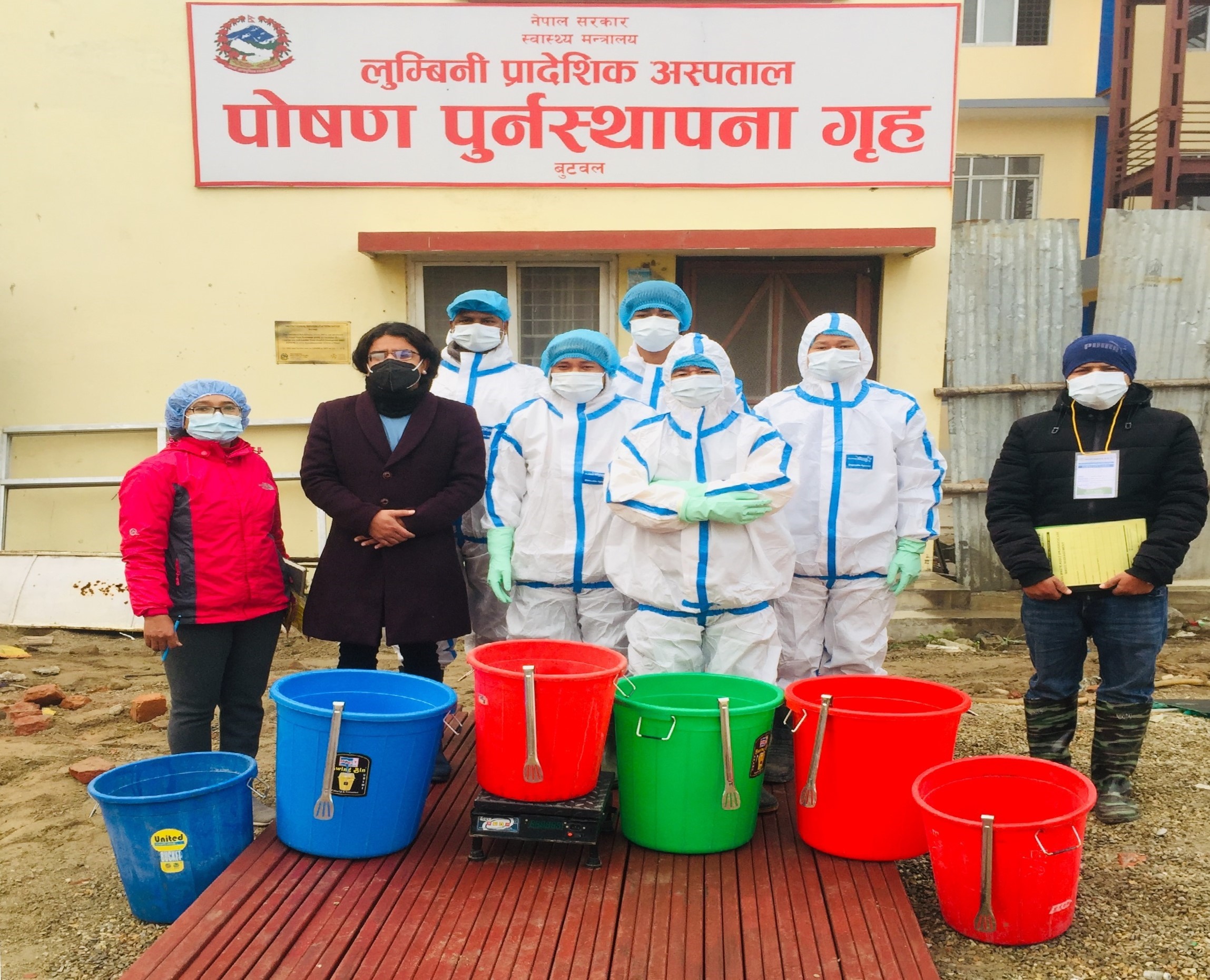Support to the Health Sector Strategy (GIZ-S2HSS)

TA support for institutionalizing healthcare waste management as per national standards and operating procedures at selected hospitals in Nepal.
Project Overview
TA support for institutionalizing healthcare waste management as per national standards and operating procedures at selected hospitals in Nepal is a project of GIZ (German Development Corporation) supporting the Ministry of Health and Population with consultant partner Waste Service Pvt. Ltd for Lot 2 (Western Cluster). The project builds on the achievements of the previous GIZ-S2HSP and aims to consolidate successful approaches for handing over to the partner organization.
The current phase of GIZ-S2HSS aims to consolidate the HCWM supported by strengthening the capacities of 13 hospitals in five provinces to adhere to healthcare waste management national standard and operating procedures and set an example for other public hospitals in Nepal.
The GIZ (S2HSS) aims strengthen the capacities of the institutions responsible for social health protection and healthcare provision of the population.
Objective of the project:
- To strengthen the capacities of selected hospitals to comply with the national healthcare waste management standard and operating procedures.
- To assist in establishing good HCWM practices/ model wards at hospital level at selected five hospitals with specified on two different lots due to geographical condition.
Technical Support and Leadership
Waste Service Pvt. Ltd., provided technical support, leveraging its expertise to drive the project towards success Tika Ram Poudel, a recognized leader in waste management, headed the project as the Team Leader.
Duration of Project: From December 2021 until 31 December 2023.
Selected 5 hospitals for Lot 2 (Western Cluster) were:
|
S.N.
|
Hospitals
|
Province
|
|
1.
|
Lumbini Provincial Hospital, Butwal
|
Lumbini
|
|
2.
|
Rapti Academy of Health Science, Gorahi, Dang (Federal Hospital)
|
Lumbini
|
|
3.
|
Bheri Hospital, Nepalgunj (Federal Hospital)
|
Lumbini
|
|
4.
|
Seti Provincial Hospital, Dhangadi
|
Sudur Paschim
|
|
5.
|
Mahakali Provincial Hospital, Bhimdatta Municipality
|
Sudur Paschim
|
Responsibilities of Waste Service Pvt. Ltd. were:
- Baseline assessment of 5 hospitals
- Technical assistance for Autoclave testing, operation and maintenance at 5 hospitals.
- Conduct training and orientation on HCWM at 5 selected hospitals.
- Onsite mentoring and coaching to support hospital on improving waste management practice at 5 hospitals.
- Technical support on regular data compilation, monitoring and reporting at 5 hospitals.
- Process documentation and dissemination at 5 hospitals.
- Coordination with healthcare without harm.
Outcomes of the project:
- Plan for the budget as per data provided in the coming F/Y in coordination with HCWM Committee.
- Decrease staff turnover through onsite orientation, mentoring and flexible duty schedule.
- Improvement in segregation through regular follow up and staff motivation along with proper placement of buckets which leads to easy waste segregation.
- Availability of logistics in time with emphasis in stock updates and follow up with store.
- Decrease public health risk as transportation of waste is done by using separate route using trollies and use of PPE.
- Decrease in infectious waste generation, easy and cost- effective treatment and maximum resource utilization by mentoring, coaching and daily monitoring by focal person and weekly by higher authorities.
- Decrease NSI incidents and Improved OHS by using Needle cutter and also by recording of the incidents.
- Increase in General waste quantity and recyclables through proper segregation of waste and public awareness.
- Positive attitudes toward HCWM via motivation, clear policies and procedures, continuous communication and feedback mechanism.
- Prioritize HCWM and plan accordingly as data presents visible changes and robust communication with management.
- Improved Transportation, temporary storage and final disposal by educating and motivating staffs through awards or incentives.
- Maximum utilization by using limited resources through work division, job planning and strengthening housekeeping.
- Proper Sharp management ensuring that the needle cutters are distributed and availability of sharp containers at source.
- Safe and effective management of waste in environmentally friendly manner by record keeping, construction of placenta pit, sharp pit, bio-degradable pit, use of autoclave/microwave/ shredder and regular maintenance of autoclave.
Conclusion
In conclusion, the implementation of the TA support for institutionalizing healthcare waste management as per National standards and operating procedures at selected five hospitals (MH, SH, BH, RAHS, LH) has yielded significant advancements in healthcare waste management.
Despite numerous challenges, this project proved effective in enhancing the capacity development and establishing healthcare waste management system in all the hospitals, demonstrating visible outcomes and serving as an example for other public and private health institutions.
